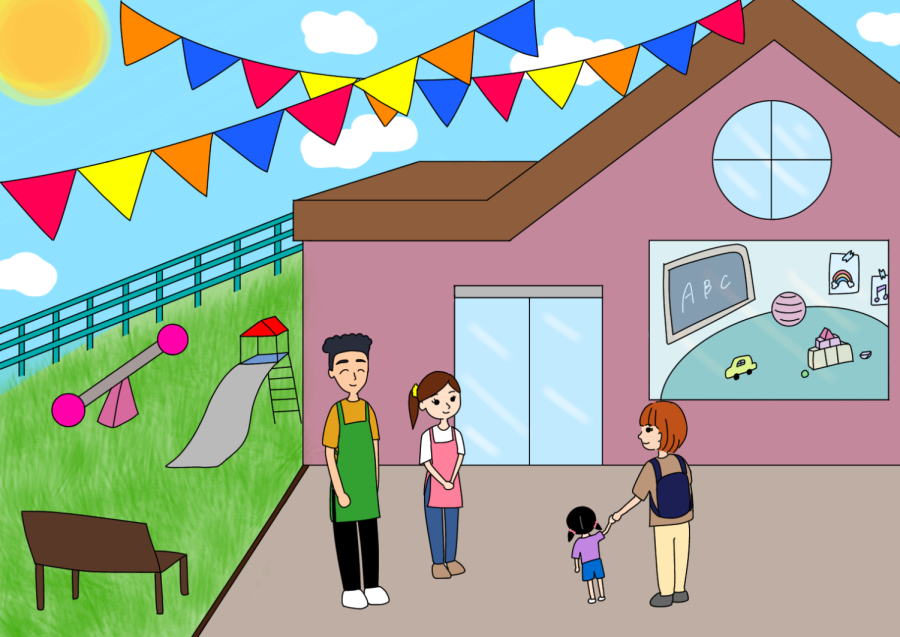“I think thou art an ass… Marry, so it doth appear. By the wrongs I suffer and the blows I bear. I should kick, being kick’d; and, being at that pass, you would keep from my heels and beware of an ass.”
– from “The Comedy of Errors”
Thomas Bradac, director, says “The Comedy of Errors” is probably one of Shakespeare’s funniest plays and the only farce, which makes fun of society, and humanity in general.
“It’s funny, it’s quick, it’s fast…I think for anybody who isn’t really familiar with Shakespeare, this is the one to come and see,” Alyssa Bradac, assistant director, said.
The play will be previewed at 8 p.m. and will be performed on April 1-2 and 8-9 in the Campus Theatre.
The play is a slapstick kind of comedy, which is more of a physical comedy. The comedy revolves around a mistaken identity, Thomas Bradac said. It’s about two sets of twins who have been separated since birth, with each set of twins being a slave and the other a master.
The two sets of twins were lost at sea in a shipwreck, and one set of twins ends up in a city called Syracuse. The other set of twins ends up in Ephesus, where most of the story takes place.
“One set is looking for the other, and the other one doesn’t know he exists,” Thomas Bradac said.
Robert Beyda, theater major, who is playing the father of the twins, said this play is a farcical humor, and very physical.
To give the play a modern twist, it is set in modern times where you could expect to see skateboards, big puffy hair and a lot of goofiness and silliness, Beyda said.
“It’s the late 1990s, kind of club Mediterranean, so it is very bright, very colorful with lots of lights, sounds and jokes,” Thomas Bradac said.
Thomas Bradac said what really makes this show enjoyable is the language, and that the entertainment is within the language itself.
Shakespeare was not meant to be read and studied the way it is taught in English classes; it might put some students off Shakespeare for it may be too hard for them to understand, Thomas Bradac said.
“It was always meant to be heard; “Hamlet says, ‘I go to hear a play,’ so hearing and seeing the play is where the real joy of Shakespeare happens,” Thomas Bradac said. “There is no reason to do it (play) unless the language is Shakespeare.
“I would encourage anybody who’s been turned off to reading Shakespeare to come and see and hear it; I think they’ll have a good time.” he said.
“It’s beneficial to see a Shakespearian play, to see some sort of semblance of culture, of history,” Beyda said. “It does show a reflection of even humanity today. It would benefit the students by simply enjoying it.”
“This is part of our culture where the English language comes from,” Alyssa Bradac said. “Any kind of art is beneficial; it shows an interesting perspective on life that we over look today.”







